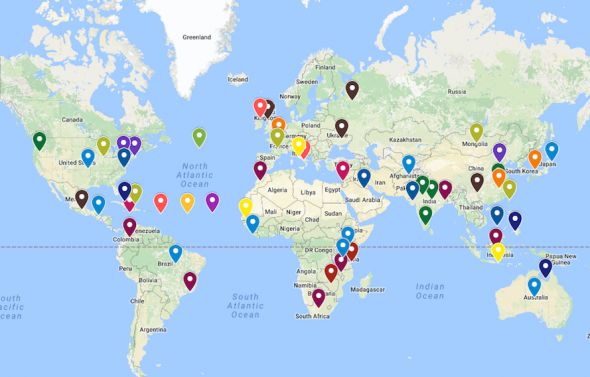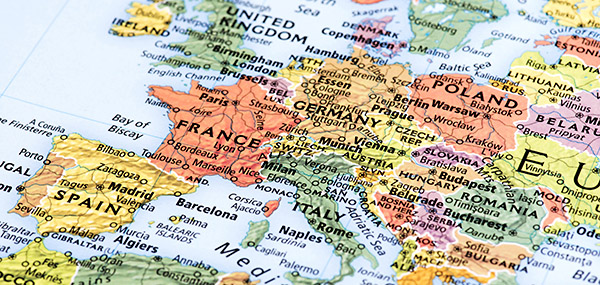Global Engagement
The impact of MIT's humanistic fields around the world
Browse the map to explore representative projects selected from the School's large international portfolio — from anthropologists researching post-Soviet Mongolia to political scientists studying health services in Guatemala, to linguists revolutionizing science education in Haiti.
Discover how each of MIT's humanistic fields — in the humanities, arts, and social sciences — help make a better world around the globe. Click any department to see stories and videos about our global engagement.
Anthropology
Center for International Studies
Comparative Media Studies/Writing
Economics
Abdul Latif Jameel Poverty Action Lab
Knight Science Journalism Program
Linguistics
Program in Science, Technology, and Society
For more on international engagement
across the Institute, visit the Global MIT website!
Stories by Field
"Humanity faces urgent challenges — challenges whose solutions depend on marrying advanced technical and scientific capabilities with a deep understanding of the world's political, cultural, and economic complexities."
— L. RAFAEL REIF, PRESIDENT OF MIT
Anthropology
website | research
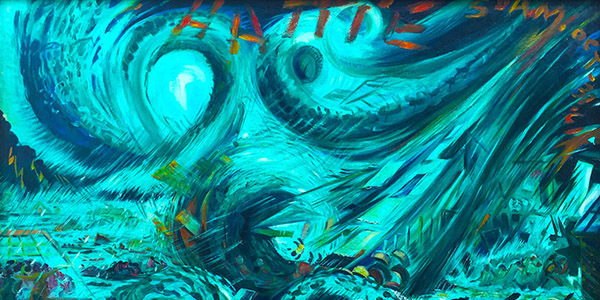
Detail; Hurricane Hattie Belize, painting by Pen Delvin Cayetano, 1996; ©2018 Artists Rights Society, New York/Bonn
On planetary change and human health | Amy Moran-Thomas
MIT anthropologist Moran-Thomas reflects on the deep connection between planetary and human well-being: “When I think of health now, I think of the disarray in bigger ecosystems and infrastructures that is also landing in human bodies.”
Story
Rebuilding Haiti
Haiti’s past casts a long shadow over its future, according to four MIT scholars (all with strong personal ties to Haiti) who spoke at a Starr Forum held to explore the future of the country. Insights from Michel DeGraff, associate professor of linguistics, Erica James, associate professor of anthropology, Cherie Miot Abbanat, lecturer in the Department of Urban Studies and Planning, and Dale Joachim, a visiting scientist at the MIT Media Lab.
Learn about the keys to Haiti's future
M. Amah Edoh | On MIT OCW's Chalk Radio podcast
Africa has long been depicted in as a place of famine and dysfunction. More recently, the continent has been portrayed as the next frontier for business and artistic innovation. In this episode, Edoh, Professor of Anthropology and African Studies talks about how Africa, as a concept, is produced through cultural practices including music, film, theatre, and clothing.
On YouTube | Global Africa: Creative Cultures (21G.026) | Subscribe to Chalk Radio
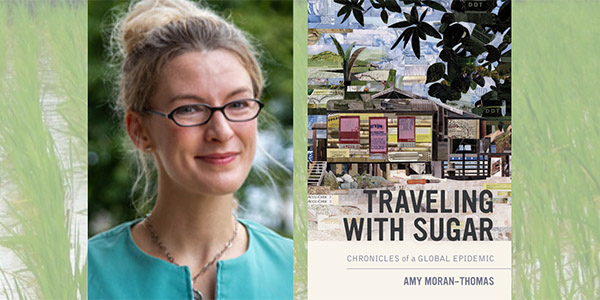
Amy Moran-Thomas, Alfred Henry and Jean Morrison Hayes Career Development Associate Professor of Anthropology
Traveling with Sugar: Chronicles of a Global Epidemic | Amy Moran-Thomas
In her new book, Moran-Thomas reframes the rising diabetes epidemic as part of a five-hundred-year-old global history. Amid injuries and untimely deaths, many people across the Caribbean and Central America call the affliction simply “sugar” — or, as some say in Belize, “traveling with sugar.” About the Book | Amy Moran-Thomas
Steppe by steppe
Mongolian anthropologist Manduhai Buyandelger studies a society in transition. Anthropologists often work best with one foot inside a society and one foot outside it: They are steeped in a culture, but detached enough to analyze it. For Buyandelger, this vantage point is part of life itself. She is a Mongolian anthropologist at MIT, whose work illuminates her home society and very much derives from her own insider-outsider relationship to it. Story

Masks reveal new possibilities | Manduhai Buyandelger
"In both traditional shamanic rituals and in contemporary computer-mediated virtual reality, a mask conceals one identity to reveal new possibilities. Seen in this light, virus protection masks offer an opportunity to replace a visage of fear with a public expression of strength as a community."
Full commentary
On Africa and Innovation
3 Questions with Amah Edoh. "Africa today is seen as the future of global innovation and entrepreneurship in areas from technology to the arts. Important questions about Africa’s new visibility include: Who is recognized as an expert? What is seen as innovative, and what knowledge is considered worth carrying forward? Who gets to be the face of this 'New Africa'?"
Intrerview | Chalk Radio Podcast with Amah Edoh
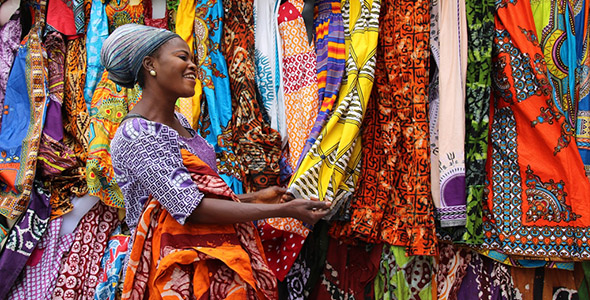
A textile retailer presents her fabrics in Togo. Photo: Alexander Sarley, Creative Commons
"The recent economic growth reported for the African continent belies sizeable inequalities within and across countries. How might we engineer the type of entrepreneurship that helps to close these gaps?"
Center for International Studies
website | research
CIS produces research that creatively addresses global issues and has a major role in educating the next generation of global citizens. The work of the CIS group informs public opinion, government leaders, policy-makers, international organizations, and the MIT community.
Democracy in distress?
When the Cold War ended in the early 1990s, it seemed democracy had triumphed among political systems. But more recently, many democracies have run into a common set of troubles, with authoritarian leaders grasping enough power to create illiberal regimes. Experts analyze a global trend: democratic governments that collapse from within while maintaining a veneer of legitimacy. Story + Video
Fotini Christia on new U.S./Taliban agreement: will it bring peace to Afghanistan?
"The truth is that the Afghan government has been fearful of a possible peace agreement with the Taliban, as that would allow for the military withdrawal of its main backer, the U.S., says Christia. "Special Envoy Zalmay Khalilzad, an American of Afghan descent who has been heading the negotiations with notable canny, has been working hard to keep the intra-Afghan negotiations on track." Story
When culture clashes with Covid-19
MIT panelists examine the roles of social norms in countries’ differing responses to the coronavirus pandemic. Story
Understanding populism
At MIT forum, scholars wrestle with the dynamics of a global political trend. In her remarks, Suzanne Berger said that while “slowing the pace” of globalization may help democratic politics, she does not regard a rolling back of global economic connections to be desirable. The larger problem, Berger suggested, is not globalization in itself, but a globalizing economy that has not been accompanied by inclusive politics. Story + Video
• Security Studies Program
SSP is a program of the MIT Center for International Studies
Website
John Tirman explores the fate of civilians in America's wars
Americans are greatly concerned about the number of our troops killed in battle and rightly so. But why are we so indifferent, even oblivious, to the casualties suffered by those we fight and those we fight for? John Tirman, executive director at the MIT Center for International Studies, answers this question in The Deaths of Others. More
Understanding China | M. Taylor Fravel
In Active Defense, political scientist Taylor Fravel analyzes the modern history of Chinese military strategy, a subject heretofore considered too opaque to interpret.
Story | PDF of Introduction | M. Taylor Fravel
Will the Covid-19 pandemic change national security?
At MIT’s Starr Forum, experts consider whether the coronavirus crisis might lead to a rethinking of defense strategies. Story + Video
Japan’s evolving intelligence efforts | Richard Samuels
New book examines the past and future of Japanese intelligence services in a rapidly shifting world, and traces larger contours in Japanese history. Story
A better kind of cybersecurity strategy
New model shows why countries that retaliate too much against online attacks make things worse for themselves. Story
A new world of warcraft | Erik Lin-Greenberg
Greenberg, an assistant professor of political science, explores how a burgeoning high-tech arsenal is shaping military conflict, and assesses "factors that may determine whether there’s war or peace.” Story
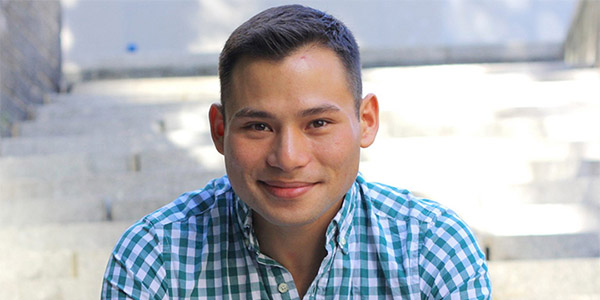
Erik Lin-Greenberg, assistant professor of political science
• MISTI
MISTI is a program of the MIT Center for International Studies
Website
MISTI Australia expands horizons, one adventure at a time
Exploring new cultures and conserve the Great Barrier Reef Story
MISTI alumni innovate together to save lives in Nigeria
When Amir Bature came to MIT from Bayero University Kano (BUK) in Nigeria as part of the Empowering the Teachers (ETT) program, he was amazed at his shift in perspective during his time on campus. “The first time we arrived at MIT, there were a lot of things where we said ‘no, this is impossible.’ But before we left, it was all possible!” Story
University of the Witwatersrand partnership extends beyond international travel
Now in its seventh year, the MIT-Wits Program is one of MIT’s most active in Africa. Whether through MISTI-organized student opportunities and faculty seed funds, visiting professors, or its array of edX courses, the relationship is as strong as ever. Story
MIT deepens connections to the Middle East
The SHASS-based MISTI program launches a new seed fund in Jordan as part of MIT-Arab World program. Story
Comparative Media Studies / Writing
website | research
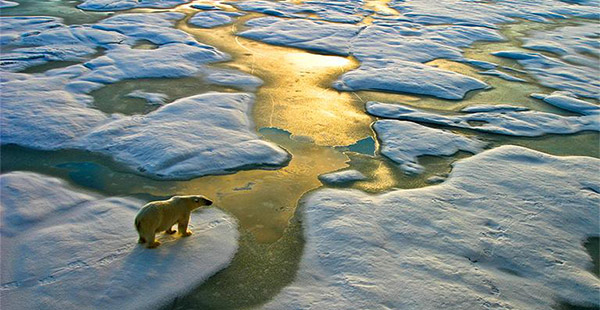
CMS course equips students with rhetorical skills to help solve climate change.
In CMS.375/Reading Climate Through Media, students explore how climate is construed in the contemporary media in order to gain a better understanding of how views of climate change are shaped and received in the public sphere. They study the pathways that take us from climate science to media content, from big data to the particulars of the human experience — and, they learn how to craft effective climate stories and messages themselves.
Story
Three Flames | Alan Lightman
The acclaimed author's new novel follows the fortunes of a family in post-civil war Cambodia as the country rebuilds. Interview
CMS Professor Jing Wang advances philanthropic solutions to the digital divide
Launched in 2009, NGO2.0 helps grassroots NGOs throughout China employ digital and social media tools to collaborate with each other, create crowdfunding projects, and enhance the public’s awareness of the social causes they promote. "I was driven by the idea that social media could make an impact for underserved populations in China, and I wanted to start the process with grassroots NGOs," Wang says. Story
• Graduate Program in Science Writing
website | news and events
The MIT Graduate Program in Science Writing (GPSW) is one of the world’s premier master’s programs in science journalism and communication.
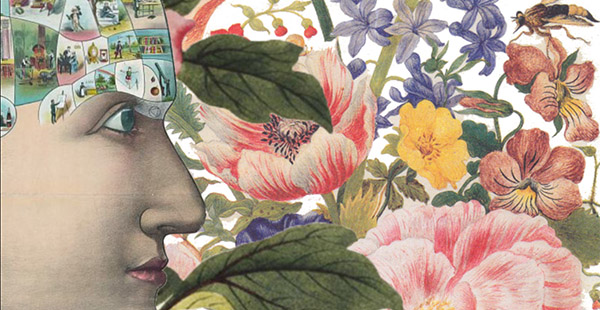
Read the latest from the MIT SciWrite students and alumni.
Gallery of stories and clips
Science Writing alumni engage the public in critical issues ranging from medical breakthroughs to climate change.
Story
Seth Mnookin on Science Writing
Science "pushes me to constantly go out of my comfort zone," says director of MIT's science writing program
Interview

MIT TASK FORCE ON THE WORK OF THE FUTURE
Final report outlines route toward better jobs, wider prosperity
The task force report, led by MIT economist David Autor, Elizabeth Reynolds, and MIT Historian of Technology David Mindell, identifies ways to align new technologies with durable careers — presenting six conclusions and a set of policy recommendations that would enable more people to enjoy good careers even as innovation transforms workplaces.
Story | Final Report | Related: Don't fear the robots | Congress on AI & Work of the Future
The impact of technology on health care workers | John Van Reenen
A key question in healthare is if advances in information technology might automate away the jobs of health workers. Van Reenen reports that "Our work, consistent with a small literature, finds no significant job displacement effects or falls in wages." Story
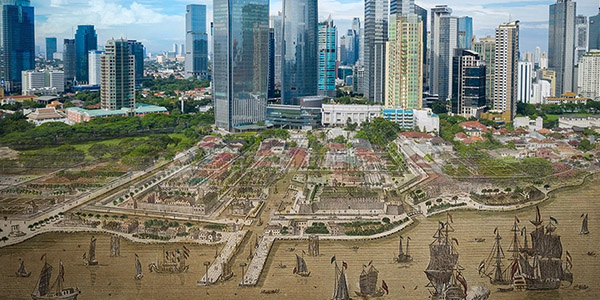
Image collage: Christine Daniloff
Benjamin Olken explores the complex effects of colonial rule in Indonesia
Evidence links Dutch-era sugar production and greater economic activity today. Story
Nobel laureates Banerjee and Duflo examine what we know about the global economy and how to improve it. Story
Economist Alexander Wolitzky uses game theory to model institutions, networks, and social dynamics. Story
Innovative study estimates extent to which air pollution in China shortens human lives. Story
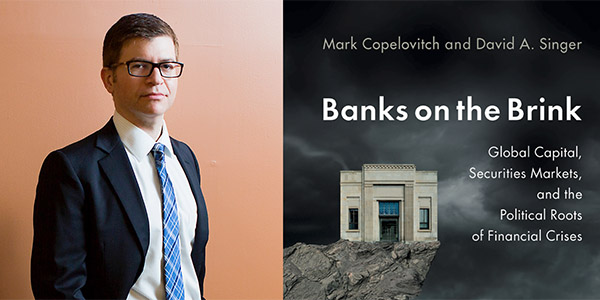
David Singer, Head, MIT Department of Political Science
POLITICAL SCIENCE
Why do banking crises occur? | David Singer
Singer, the head of MIT Political Science, and Mark Copelovitch find two key factors connected to financial-sector collapses around the globe. Story
Does increased women’s employment/wages reduce domestic violence?
Isadora Frankenthal, a young Brazilian economist, is answering this question via our online MicroMasters program in Data, Economics, and Development Policy. Story | Related: First cohort earn masters degrees in DEDP
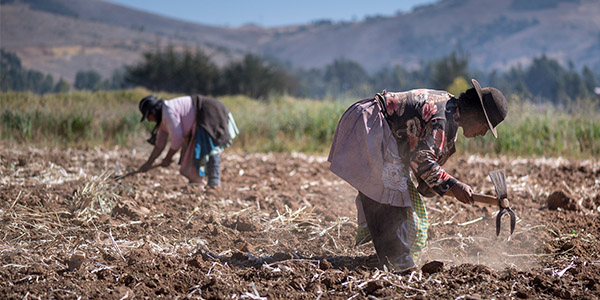
“I want to continue working on this, to understand the underlying mechanisms," says Isadora Frankenthal. Her research aims to reduce domestic violence, which remains a pervasive problem globally, with heavy costs to individuals and economies.
• Abdul Latif Jameel Poverty Action Lab (J-PAL)
J-PAL is a program of MIT Economics. Our mission is to reduce poverty by ensuring that policy is informed by scientific evidence. The program accomplishes this through research, policy outreach, and training.
Website | News
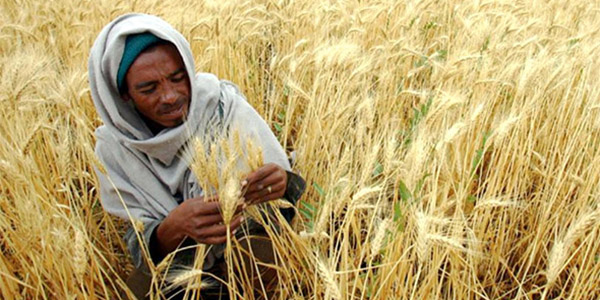
"The significance of Abhijit’s and Esther’s scholarship is not only that it has transformed the ways in which economists and policymakers approach poverty alleviation, but that, at the core, their research is guided by deeply humanistic values. In their vision, the materially-poor are at the center, as are remedies for poverty that actually work, that open doors for millions to education, healthcare, economic well-being, and safe communities — to the full promise of human life.”
— Melissa Nobles, Kenan Sahin Dean, MIT School of Humanities, Arts, and Social Sciences
Duflo's and Banerjee's books
Good Economics for Hard Times
Poor Economics: A Radical Rethinking of the Way to Fight Global Poverty
J-PAL GLOBAL
$25M gift launches initiative to solve problems at the nexus of climate change and poverty
A $25 million gift will underpin a new initiative to combat both climate change and poverty through scalable, evidence-based policy solutions. The new King Climate Action Initiative (K-CAI) will conduct research to design and test interventions, and will work with decision makers to catalyze scaling of the highest-impact solutions. Story | About K-CAI at J-PAL
J-PAL GLOBAL
Governance, Crime, and Conflict Initiative funds 98 projects, across 33 countries
The funding partners summarize the lessons to be learned from their innovative research portfolio. The map below features locations of GCCI-funded research that identifies policies that effectively promote good governance and peace, reduce crime, and support recovery from conflict. Story
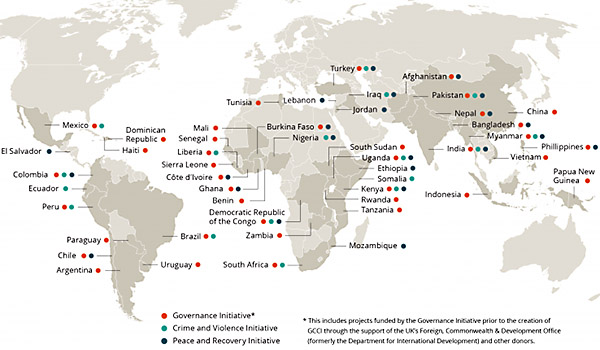
Global Languages
website | news
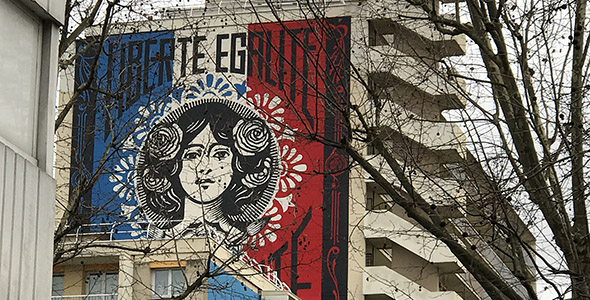
Mural by Shepard Fairey, a gift to France after the 2015 attacks
In the 13th district, the students discovered the mural pictured above, "Liberté, Égalité, Fraternité." Designed by the artist Shepard Fairey, it was offered to the city of Paris after the attacks of 2015.
FRANCE
Outstanding MIT students of French explore "Paris et la rue"
With Professor Bruno Perreau and local expert guides, MIT students discover behind-the-scenes Paris and the city’s storied streets during the 2018 January Scholars in France program. Story | More photographs
CHINA
Jing Wang leads New Media Action Lab to increase the impact of NGOs across China
The lab bridges the digital gap to improve social welfare for underserved populations in rural and urban China. Story
FRANCE
At MIT, author Édouard Louis examines the contexts for violence
The capacity to transform personal suffering into a meditation on the larger wounds society inflicts on the powerless and marginalized defines Louis’ literary voice. Story
LEBANON AND THE U.S.
John G. Mikhael ’13 wins Isabelle de Courtivron Prize
Math major Mikhael received the prize for his essay, “Lost in Translation,” which explores his experience growing up—first in the United States and then in Lebanon—and his return to the States to study at MIT. The Prize honors cross-cultural fluency — an ability key to leadership and success in today's global world. Story
CHINA
Emma Teng, MacVicar Faculty Fellow, introduces MIT students to Asian and Asian-American history
Teng, T.T. and Wei Fong Chao Professor of Asian Civilizations and an associate professor of China studies, relishes the unique atmosphere within MIT that fosters multidisciplinary collaboration. And through her research and teachings about Asian and Asian-American identities and histories, Teng helps her students challenge their own assumptions, an exercise that she hopes extends beyond the classroom. More
CHINA
Kang Zhou on the lessons of Chinese calligraphy
As MIT students develop skills in calligraphy, they also learn about Chinese culture, and practice vital principles of the artform, including: concentration, balance, observation, and reflection. Story
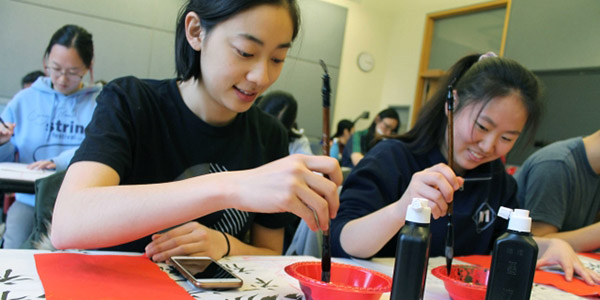
Photo: Lisa Hickler, MIT Global Languages
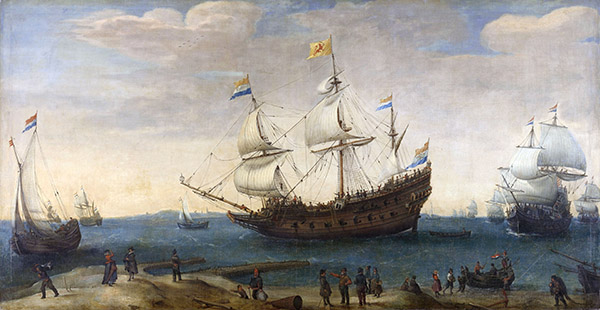
During the Little Ice Age, the Dutch were a source of goods for other countries and sailed the largest merchant fleet in Europe.
"History shows that not everywhere fares equally poorly when faced with climatic stresses. Open-access societies — ones that tolerate a diversity of views and do not restrict agency to a preordained elite — have generally proved more innovative and resilient than less-open ones." For example, the 17th century Dutch Republic.
— Anne McCants, Professor of History, MacVicar Faculty Fellow
How, in the nadir of the Little Ice Age, did the Dutch create a Golden Age? "
History shows that not everywhere fares equally poorly when faced with climatic stresses. Open-access societies — ones that tolerate a diversity of views and do not restrict agency to a preordained elite — have proved more innovative and resilient than less-open ones." Story
MIT hosts World Congress of Economic Historians
In keynote talk, Thomas Piketty calls for policies to reduce worldwide inequalities. Globalization and the expanding ranks of the educational elite have contributed to the rise in inequality worldwide, but political policy changes can impact these trends. More
On globalization and growing inequality
At the World Congress of Economic Historians: "Globalization today is at a crossroad. It is confronted with major challenges, including rising inequality and global warming. At the same time there is a lot of skepticism about what governments can do to regulate global capitalism. Looking back at previous globalization episodes is critical, first to clarify the specificities of our time." More
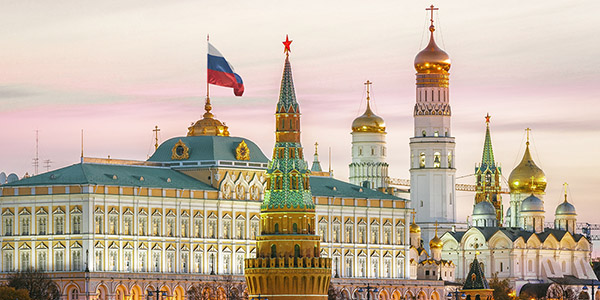
The Moscow Kremlin; iStock
How do we understand Russia’s multi-layered interference in the 2016 Elections?
MIT historian and Russia expert Elizabeth Wood analyzes Russia’s motives. Interview
Music and the transformation of Japanese society | Hiromu Nagahara
In 1929, the Victor Talking Machine Company of Japan released a recording of the song “Tokyo March,” an ode to modern life, with lines about “dancing to jazz.” From that point through the 1960s, Japan’s pop music industry became a powerhouse. By the time this pop-music boom slowed, in the 1970s, Japan had transformed itself from a traditional and hierarchical society into a nation where almost everyone described themselves as being part of the country’s middle class. Story
When Japan met the world | Hiromu Nagahara
Inspired by a family background with extensive U.S-Japan ties, Nagahara explores Japan’s cultural links to other societies. Story
The mask as public spiritedness | 公德心 | Emma Teng
"Norms in East Asian countries support the notion that 'doing something for the community good is good for me also.' Face masks are worn for a wide range of purposes: combatting urban pollution, for sun protection, for extra privacy, and, if you have a cold, as a matter of basic etiquette to protect others from possible infection." Commentary
The Theater of Enlightenment and Revolution | Jeffrey Ravel
A new bilingual, interactive online publication illuminates how politics, economics, and social conflict shaped the Comédie-Française theater troupe’s repertory and impacted its finances. Co-edited by Jeffrey Ravel, MIT professor of history, and Sylvaine Guyot, Harvard professor of French literature and theater. Story
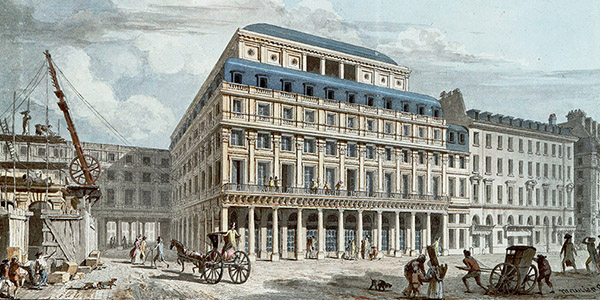
Salle Richelieu, which became the home of the Comédie-Française in 1799; Gallica Digital Library
Contesting the Iranian Revolution | Pouya Alimagham
In his new book, historian Alimagham harnesses the wider history of Iran and the Middle East to highlight how activists contested the Islamic Republic's legitimacy to its very core. Excerpt | Alimagham webpage
Taking a new look at ancient books | Stephanie Frampton
Frampton is at work on her next book, with the provisional title, Cicero’s Library: The Roman Book and the Making of the Classics. In this project, she explores the advent of the personal library in Rome, a practice that helped shaped a new literary canon. Story
How military engagement has shaped social connections between the U.S. and The Philippines | Christopher Capozzola
An epic story of a century of conflict and migration, Bound By War is a definitive portrait of an uneven partnership and the two nations it transformed. “To understand 20th-century America, you need to understand the US military," says Capozzola. "Not only as a [fighting] force...but also a generative force that transforms social relationships." Story
The Dawn of Green | Harriet Ritvo
The controversy in the 1870s over Thirlmere, a picturesque body of water in Britain’s Lake District, created a “template for subsequent environmental struggles,” writes MIT historian Harriet Ritvo/ Ritvo’s recent book, The Dawn of Green (UChicago Press) explores this episode and its ongoing influence on the way we frame environmental discussions and debates. Story
On Africa, power, and human decency | Kenda Mutongi
"Lately I have been trying to think of African history from the perspective of goodness and basic human decency. Of course, conflicts exist, and do a great deal of damage in our lives, and we must confront them — but we must also allow ourselves to appreciate basic goodness and kindness when we see it." More | MIT-Africa Working Group
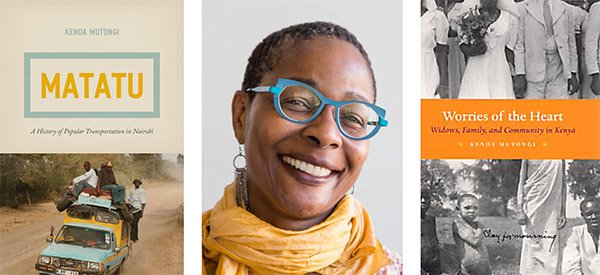
L to R: Cover, Matatu: A History of Popular Transportation in Nairobi (University of Chicago Press); Kenda Mutongi, MIT Professor of History; Cover, Worries of the Heart: Widows, Family, and Community in Kenya (University of Chicago Press)
"We need to start taking all forms of African knowledge seriously, because until we do, we will continue to lose out on the contributions of a large swath of humanity."
— Kenda Mutongi, MIT Professor of History
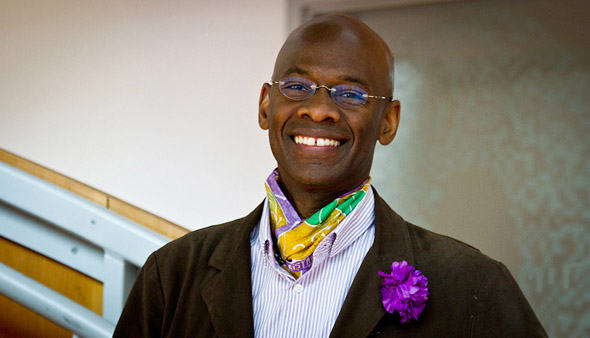
“In Haiti today, most Haitians are excluded from access to quality education and from the means to create and transmit wealth. Indeed most laws and decrees, most written press, most textbooks, most official exams are written in one language (French), which the vast majority of Haitians do not speak. Yet most everyone in Haiti speaks one language in common: Haitian Creole (Kreyòl).”
— Michel DeGraff, Professor of Lingustics; Director, MIT-Haiti
A champion of Creole
Linguist Michel DeGraff is on a quest to give Haitian Creole its due as a respected language — and to help Haitian schoolchildren learn in their native tongue. Story
MIT-Haiti and Google team up to boost education in Kreyòl Story
MIT and Haiti sign agreement to promote Kreyòl-language STEM education
Initiative designed to help Haitians gain technical education. Story
Michel DeGraff on Haiti’s new policy for teaching in Kreyòl
MIT scholar, and advocate of native-language instruction, backs linguistic change. Story
Haitian educators and MIT faculty develop Kreyòl-based teaching tools
Project led by linguist Michel DeGraff is revolutionizing education in Haiti, and serving as a model for similar projects around the world. Story
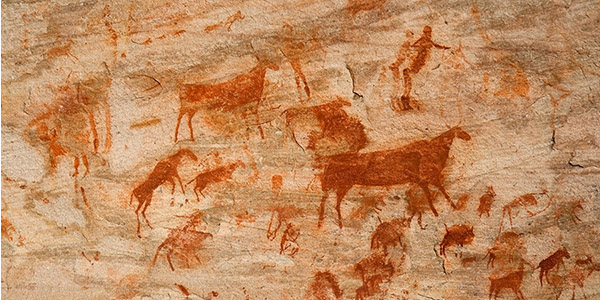
Did humans speak through cave art?
New MIT linguistics paper links ancient drawings and language’s origins. Story
First major database of non-native English Story
Endangered Languages
Half the global world's 6,000 spoken languages are now in danger of extinction. Why do we care so much about languages most of humanity will never hear?
Story
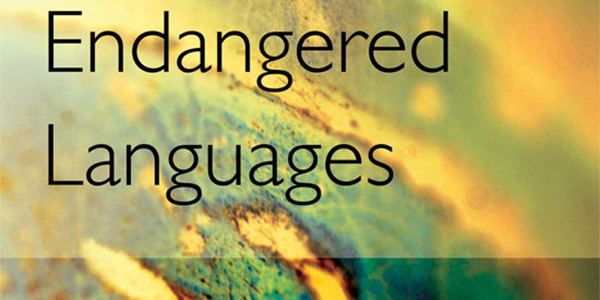
“Exploring the full range of human languages is to the linguist what examining the abundance of species on the planet is to the biologist. There may well be crucial questions about the structure of human language that can only be answered by working with, say, speakers of Navajo."
— David Pesetsky Ferrari P. Ward Professor of Modern Languages and Linguistics, MIT Department of Linguistics and Philosophy
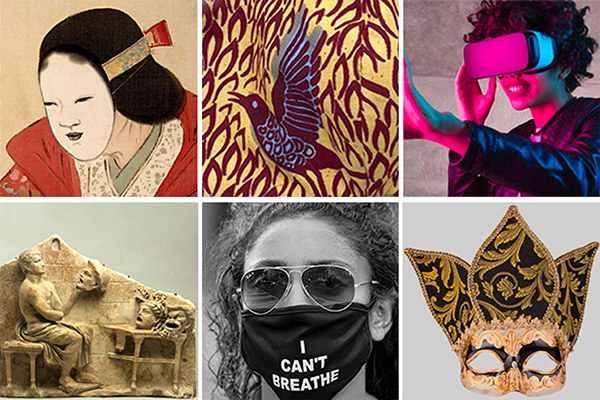
Persona: Masks in the Graeco-Roman World | Stephanie Ann Frampton
"In Latin, one of the words for mask is persona, thought to have meant 'something through which sound passes' (per 'through,” sono “to make a sound'). Even in the time of Cicero, persona was already being used to describe the 'part' or 'character that one sustains in the world' — in other words, the role or roles we play in society." Commentary
How content and form of writing interacted in the ancient world
Classicist Stephanie Frampton traverses disciplines Story
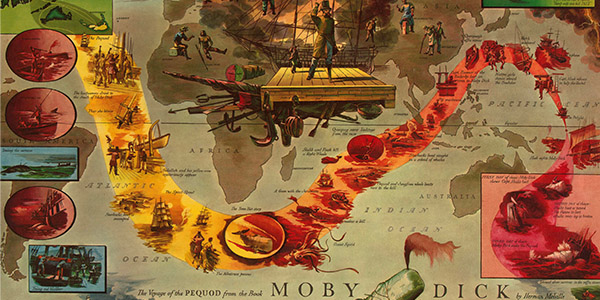
Only in literature can a hundred-ton mammal tiptoe into your life—or an anchor-weight sea novel carry you off on journeys of mind so moving and real that one day you say, “I’ve got to see for myself!
Global Travels with Melville | Wyn Kelley
Only in literature can a hundred-ton mammal tiptoe into your life—or an anchor-weight sea novel carry you off on journeys of mind so moving and real that one day you say, "I've got to see for myself." Story
Mary Fuller studies early modern travel writing
First-person accounts travels beyond the boundaries of Europe Story
Marah Gubar studies children and international literature. Story
• Global Shakespeares
The Global Shakespeares Video & Performance Archive provides online access to performances of Shakespeare from many parts of the world. The platform offers access to international performances that are changing how we understand Shakespeare’s plays and the world. Website
Oberon Passage from Midsummer Night's Dream (Peter Brook, 1970)
Music and Theater Arts
website | News

London: Bat Out of Hell, directed by MIT Professor Jay Scheib
London and Montreal: Jay Scheib on theater, daring, and love
MIT professor directs award-winning rock musical “Bat Out of Hell” Story
World Music at the MIT Listening Room
Listen + free downloads of some recordings
Tuus, performed by Rambax
MIT Senegalese Drum Ensemble, Directed by Lamine Touré, MIT Artist-in-Residence and Patricia Tang, Professor of Music
Listen
MIT's Gamelan Galak Tika is at the forefront of innovative, cross-cultural music
Led by MIT composer Evan Ziporyn
Galaktika.org
Claire Conceison (康开丽) researches and teaches contemporary Chinese theater
Focuses on cross-cultural exchange and performance, as well as Asian American theatre.
Conceison's MIT webpage
The chemist and the stage | Audrey Pillsbury
Senior chemistry major and artist Audrey Pillsbury creates a musical about life as a second-generation Asian-American.
Story | 2-minute video
MIT Festival Jazz Ensemble in Puerto Rico | Fred Harris, Jr., Director
25 student-musicians in the acclaimed FJE and saxophone giant Miguel Zenón, a native of Puerto Rico, recently visited his native island for a series of music concerts, cultural workshops, and classroom presentations.
Story by MTA | Zenón's "En Pie De Lucha," a tribute to the people of Puerto Rico
Philosophy
website | ethics and AI
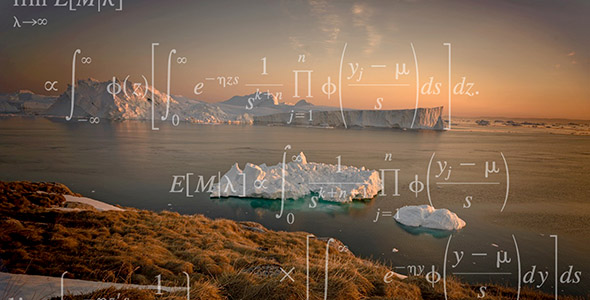
For Saleem Aldajani ’18, the class and its demanding approach has changed how he views the world. "It’s really given me a systematic way of asking the right questions," he says, "kind of like a moral guide towards my obligations and actions.
The moral calculus of climate change
In a mathy philosophy class, MIT students explore the risks, probable outcomes, and ethical implications of living in a warming world. Story
Philosopher Kieran Setiya explores how philosophy can address the problem of climate change.
Conversation
Political Science
website | research
“There has been a general liberalizing trend on immigration, which is contrary to a lot of rhetoric and commentary. Europeans, on average, when you ask them the same questions over time, have given more pro-immigration answers than they did a generation ago.”
— Devin Caughey, Associate Professor of Political Science
Public opinion study in Europe shows drop in anti-immigration sentiment
Surveys spanning recent decades also reveal geographic differences and gender gap in economic views. Story
For cultural and political conflicts, a humanizing imperative
Political science PhD candidate Nasir Almasri '21 studies conflicts that emerge at the intersection of politics and religious traditions, with a focus on humanizing those involved. Story
Teaching community organizers via WhatsApp yields encouraging results in South Africa
MIT Governance Lab research Story
MIT graduate students launched the Future Strategy Forum to advance women in security studies. Story
Looking under the surface of politics in Latin America
Danny Hidalgo’s work reveals some difficult truths about money, elections, and political influence. Story at MIT News
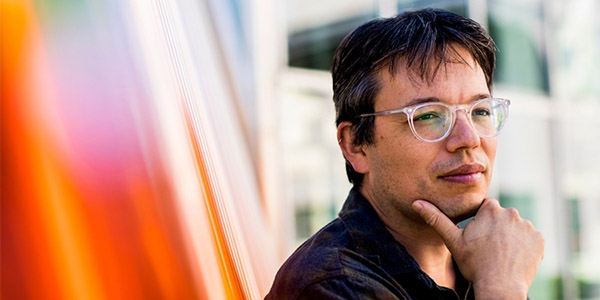
Danny Hidalgo, photo by Adam Glanzman
• MIT GOV/LAB
The MIT GOV/LAB is a research program of MIT Political Science
website | research
GOV/LAB unveils new tools for engaged scholarship
To support their work to inform policies with citizen input and scientific data, the GOV/LAB team introduces new tools, including a Risk & Equity Matrix and materials on How to Have a Difficult Conversation. Learn more + access the tools
Science, Technology, and Society (STS)
website | news
Enduring Cancer: India’s culture of coping with cancer | Dwaipayan Banerjee
"A landmark." In his deeply human ethnography of cancer in India, Banerjee portrays the efforts of Delhi's urban poor to create a livable life with cancer. (Duke University Press, 2020) Story | Dwaipayan Banerjee
Historian of the hinterlands | Kate Brown
In overlooked spots on the map, Brown examines the turbulence of the modern world; currently, she is researching overlooked forms of human knowledge about nature that could "help foster a more sustainable world." Story | Brown webpage
The overlooked history of African technology
New book explores the confluence of innovation, hunting, and nature in Zimbabwe. Story | Mavhunga webpage
Stealth technology
How Africans developed scientific knowledge of the deadly tsetse fly
On the human empire | Rosalind Williams
Williams recently completed a book examining the critical juncture when human endeavors began to dominate the planet, globally, as never before. The Triumph of Human Empire, explores this turning point in history and technology through the works of three writers from the late 1800s. More
• Knight Science Journalism Program
A program of STS
website | news
KSJ Fellow Thiago Medaglia on science journalism for a world in crisis
"As an environmental journalist, I have a deep connection with the natural world. I've also learned that it is essential to connect with people. As a reporter, you learn that fighting climate change includes informing the public about harmful policies and practices by governments and corporations."
Story
Women's and Gender Studies (WGS)
website | news
Through teaching, research, and programming, WGS provides frameworks for the analysis of gender, race, ethnicity, class, and sexuality. Our mission is to educate MIT students about the importance of gender equity and critical thinking about the role of gender in all areas of life. WGS supports women and gender non-conforming students and upholds the Institute’s efforts to foster community, equity, and inclusion.
Recovering Armenia
Lerna Ekmekcioglu publishes Recovering Armenia: The Limits of Belonging in Post-Gencoide Turkey, Stanford University Press. Story
Digital Feminism in the Arab Gulf
Featuring Mona Eltahawy, American-Egyptian journalist, speaker, and author of The Seven Necessary Sins for Women and Girls
Modernizing Saudi Arabia: The politics of gender
McMillan-Stewart Lecture on Women in the Developing World
WGS Intellectual Forum: Professor Amah Edoh
Amah Edoh will present "Our grandmothers' cloth: West African agency and labor in the makings of Dutch Wax cloth"
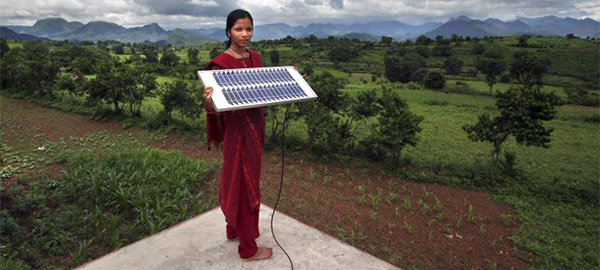
Photo: Abbie Trayler-Smith/UK DFID
Will the future be humane and livable? What knowledge and values will guide and sustain us? MIT's SHASS faculty and students address some of largest, most consequential human questions of our time."
— MELISSA NOBLES, KENAN SAHIN DEAN
